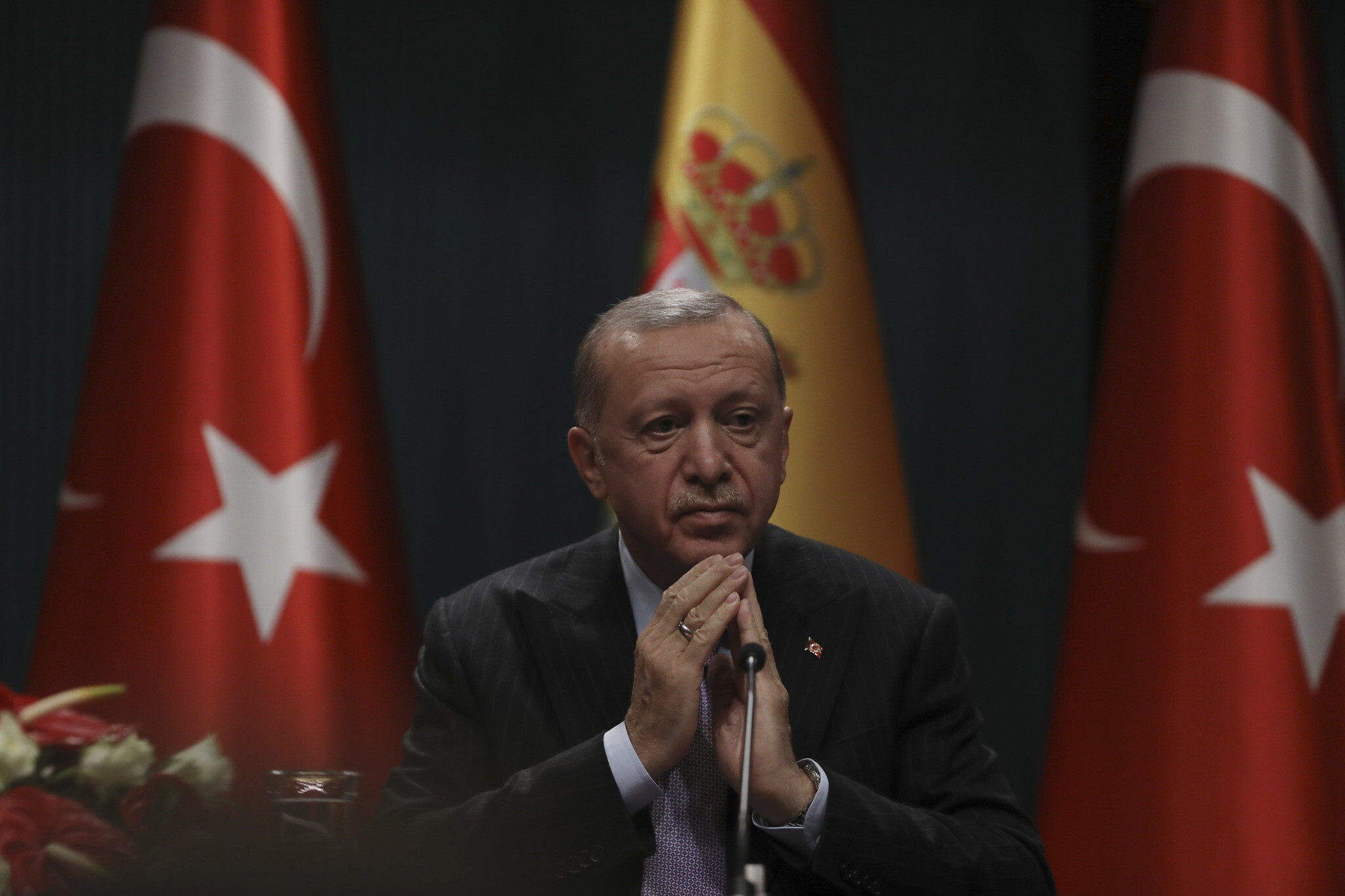
In a speech on Saturday, October 23, Turkish President Recep Tayyip Erdogan threatened to expel ambassadors from ten western countries, including the United States. This threat followed a letter from the diplomats advocating for the release of philanthropist Osman Kavala, who, despite not being convicted of a crime, has been imprisoned since 2017. Just two days later, however, Erdogan reversed course. Facing a bad economy and falling domestic support, this backtracking is evidence of Erdogan’s desperation as the 2023 general election approaches.
Turkey is in the midst of a currency and monetary crisis that began around 2018. This crisis has been characterized by a falling currency and high inflation. In 2021, the Turkish Lira has lost nearly half of its value against the US dollar, and the inflation rate has consistently been in the double digits, rising to 19.58% in September. A poll earlier this year found that 25% of respondents said they could not meet their basic needs (Gall, Economy).
The state of the nation’s economy is having political implications for Erdogan. His party, the Justice and Development Party (AKP), has support from just 26% of the population, according to a recent poll (Yackley), which is considerably lower than the 42.56% of votes the party received in the 2018 parliamentary election. Additionally, the AKP suffered significant losses in the 2019 municipal elections, losing mayorships in Istanbul and Ankara, Turkey’s two largest cities. The loss in Istanbul, where Erdogan built his national profile in the 1990s, was arguably made worse by Erdogan and the AKP contesting the initial results and demanding a redo election, where their preferred candidate once again lost.
The 2019 results have made Erdogan look beatable and have provided a source of optimism for his opponents, who are now rallying around him. The leaders of six opposition parties are now organizing with the goal of replacing Erdogan. They have significant momentum, and there is even a possibility of attempting to force early elections. A September poll found that 49.8% of the electorate think that Erdogan would lose a Presidential election, more than the 44.1% who thought he would.
The falling economy has put Erdogan in a tough place when it comes to both domestic and international affairs. Throughout the years, his political rhetoric has including criticism and warnings about western elites infiltrating Turkey and damaging its economy. He has built a strongman image revolving around standing up to these elites and defending the common Turkish citizen. At the same time, however, Turkey now needs international investment in order to rebuild, so Erdogan has portrayed good ties with Europe and the United States for the past year or so.
These dynamics converged when the western ambassadors publicly advocated for the release of Osman Kavala, a French-born Turk who is a known supporter of greater civil society in Turkey and opponent of Erdogan. This gave Erdogan an opportunity to appeal to his domestic political base, painting the ambassadors as outsiders who do not understand Turkey. By threatening to expel these diplomats, Erdogan was attempting to shore up his image as a strongman who makes his own decisions, stands up to elites, and protects Turkey from western influence.
Despite his strong statements on Saturday, it seems that the necessity of boosting investors’ confidence in good ties between Turkey and the West became more important than a short-term appeal to his base. Erdogan may have been persuaded by the immediate drop in the value of the Lira, or by Abdulkadir Selvi, a columnist with close ties to Erdogan, who wrote an article in the major Turkish paper Hurriyet laying out the possible consequences that could occur from a formal expulsion of the ten ambassadors, including suspended membership negotiations with the EU, withdrawal of EU funds, exportation of Turkish ambassadors, and other economic fallout. These considerations led Erdogan to walk back his comments about expulsion while still projecting strength by painting his response as putting outsiders in their place.
This incident exemplifies the rough waters President Erdogan is attempting to navigate as his country’s economy recedes, his political support continues its downfall, and international pressure regarding human rights and civil liberties increases. Erdogan’s quest to balance building domestic support, oppressing opposition leaders, and luring foreign investment by presenting good ties with the West will continue to result in precarious situations such as this one and a general lack of clear direction.

0 Comments